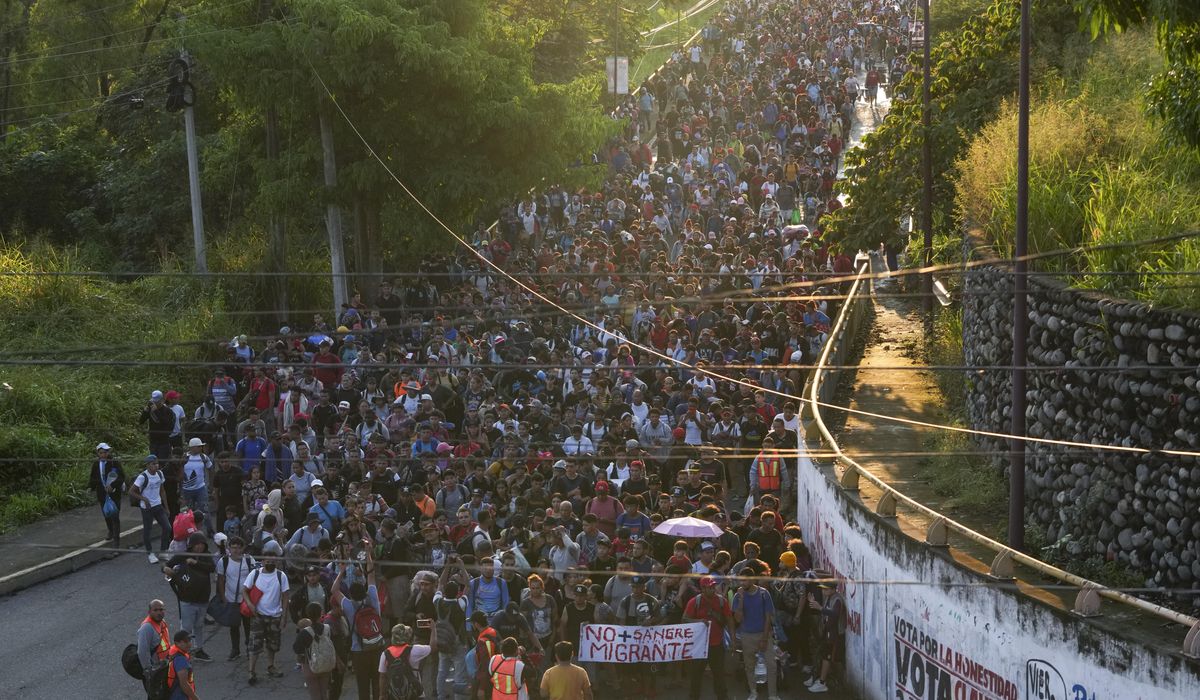


Inauguration Day is shaping up to be an unofficial deadline for immigrants who are rushing to beat what they fear will be a draconian Trump crackdown.
Colleges have put out the word to foreign students home for a winter break to make sure they return by Jan. 20 or else risk getting blocked at the border — or airport — by a possible travel ban.
And groups are urging illegal immigrants already in the U.S. under the DACA program to renew their permits now, earning at least two more years of protection under a program President-elect Donald Trump tried to kill in his first term in office.
“Given the expressed intent of the incoming Trump administration to cause disruption, chaos and suffering in the lives of immigrant families and communities across the country, one form of protection for persons protected by DACA is to ensure their work permit is renewed and valid for the next two years,” the Los Angeles-based Coalition for Human Immigrant Rights said.
No other area of policy is facing as big a pendulum shift on Jan. 20 as immigration, where Mr. Trump has promised to reverse most of the Biden legacy and reimpose the policies that were erased four years ago, spurring the most chaotic border situation in modern U.S. history.
Activists are warning immigrants to take steps now to burrow into communities and seek what protections they can. The groups also are begging the Biden administration to tear down as much of the immigration enforcement apparatus as possible in the eight weeks until the handoff.
That includes calls to cancel deportations already in the pipeline and cancel contracts for detention facilities, denying Mr. Trump the critical capacity to hold migrants for impending removals.
One group even called for a presidential pardon to “protect all undocumented people.”
CHIRLA, meanwhile, urged legal immigrants to consider applying for full citizenship before Mr. Trump takes the oath of office. The group said it would give them additional protections against deportation.
The fears are largely based on speculation about Mr. Trump’s plans.
In September, while on the campaign trail, the Republican candidate said he would revive his travel ban, the first major controversy of his previous term in office. Derided as a “Muslim ban” because it targeted some majority-Muslim nations, the program was revised several times and eventually survived Supreme Court scrutiny.
The University of Massachusetts Amherst urged its foreign students to “strongly consider” getting back into the U.S. before Inauguration Day.
Wesleyan University, in an email to students, told them to get back to the country by Jan. 19. University President Michael Roth also sounded a note of defiance against Mr. Trump in his post-election note to students.
“The mass deportations promised by President-elect Trump threaten our students who may be undocumented and are a cause of great concern to many in our community,” Mr. Roth said.
And the Massachusetts Institute of Technology’s international students office offered a session with lawyers to talk through student visa issues after the election.
Mr. Trump has been less overt about his plans for DACA, the Obama-era program officially known as Deferred Action for Childhood Arrivals. It protects some 600,000 illegal immigrants who came to the U.S. as children and who have pursued an education and kept a relatively clean record.
DACA offers two-year protection from deportation and the chance for a legal work permit, with some taxpayer benefits. Thanks to a change by the Biden administration, that now includes Obamacare.
In his first term, Mr. Trump tried to phase out DACA, but at another point proposed granting DACA recipients full citizenship rights as part of a deal with congressional Democrats to fund his border wall and make changes to the legal immigration system.
DACA is also facing an existential challenge in the courts and could disappear even without action by the Trump administration.
In addition to urging people to renew their DACA status, immigration groups are urging current beneficiaries to sign up for Obamacare now.
While many on the political left are pondering the meaning of the 2024 election results, immigration groups have argued Mr. Trump’s victory is not a mandate to reverse the Biden course on immigration.
“When confronted with the details and scope of Trump’s proposed mass deportations, the American public strongly rejects the concept,” said Vanessa Cardenas, executive director of America’s Voice.
• Stephen Dinan can be reached at sdinan@washingtontimes.com.
